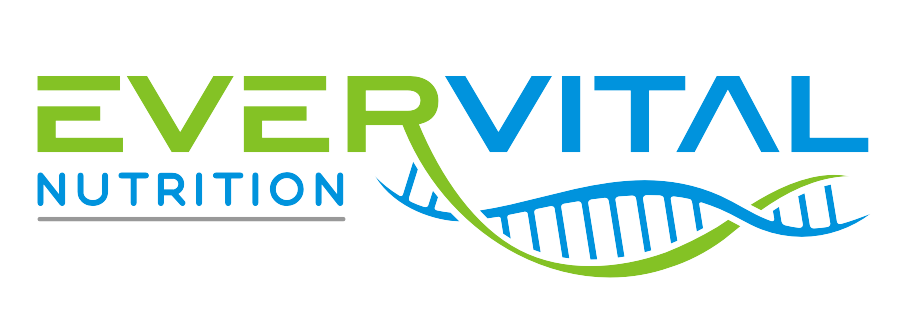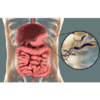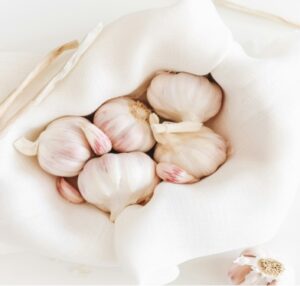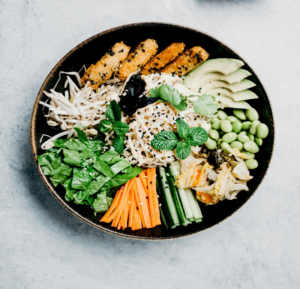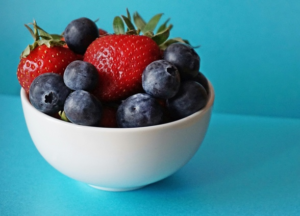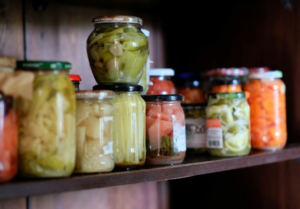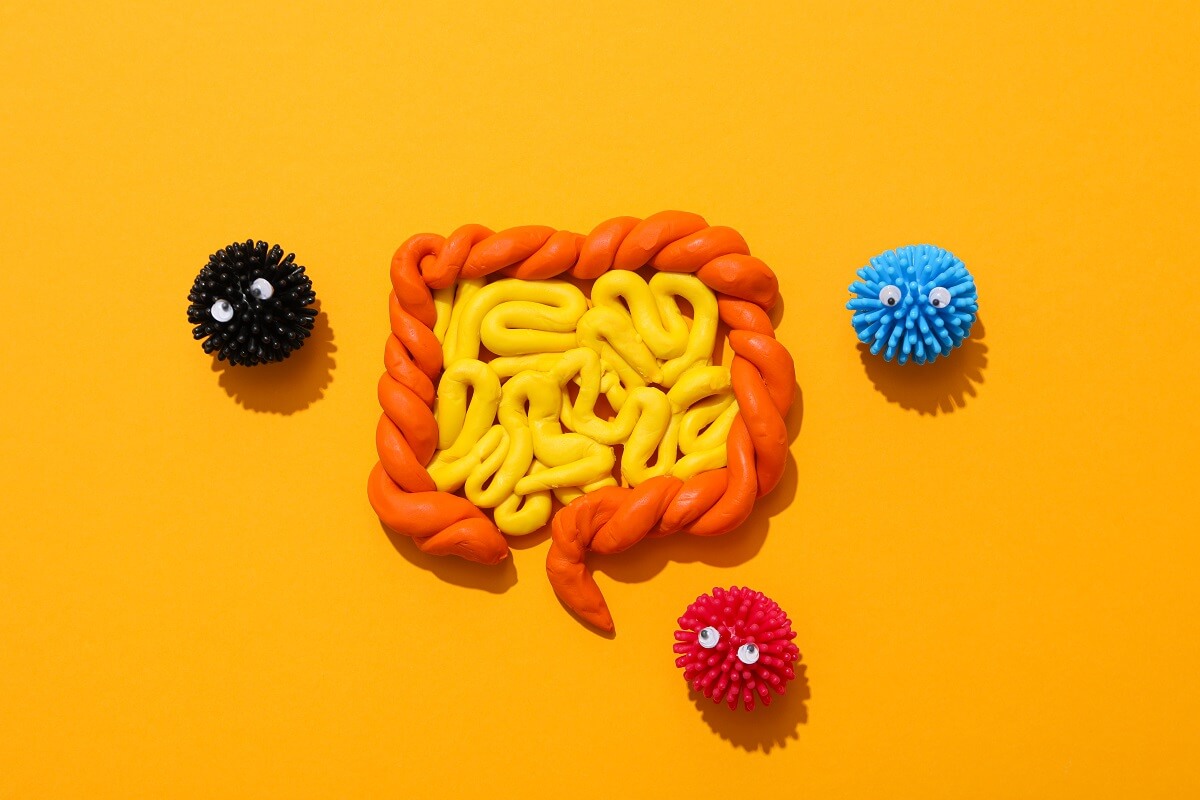
Many of us think of our gut bacteria as either “good”, you know, those guys that are beneficial to our overall health or “bad”, which is the rest of them. But it isn’t really that simple. Some bacteria can be good, to a point, but if they try to take over your gut, then they can cause symptoms just like the more harmful bacteria can.
Let’s dig in here a bit.
The Good…
When we talk about “good bacteria”, we usually have in mind the bacterial species that promote health. Often, these are the limited number of species found within probiotic supplements or fermented foods.
However, our bodies are home to a ton more species than just the Lactobacillus species you find in your yogurt. All these bacterial species together form a community of microbes known as our gut microbiome. In fact, this dark, mysterious place behind our belly button is home to trillions of bacteria, all just hanging out waiting to do great things for us.
The key to optimal health is determined not just by how many of each bacteria are present in our gut, but also, the balance between the species. The numbers and overall balance of the bacteria in our gut microbiome are influenced by several factors including, what we’re feeding them, lifestyle choices that support (or don’t support) them, medications we take… the list goes on.
Beneficial bacteria have a number of important roles in our bodies. These include:
- Helping to digest food and absorb nutrients
- Producing several vitamins, including folic acid, niacin (B3), B6, and B12, and K
- Stimulating our immune system to fight off disease
- Protecting against harmful organisms by crowding them out of the gut
- Producing acids that help beneficial bacteria to thrive
- Producing metabolites that are crucial in other metabolic processes
When beneficial bacteria multiply and thrive in our bodies, they act as our protectors. We want this group to be strong and robust. Think of them as your own personal army, fighting off the “bad” guys and keeping the order in your gut that’s necessary for the “good” guys to grow and thrive.
Some of the keystone beneficial species include:
- Akkermansia muciniphila
- Roseburia spp.
- Faecalibacterium prausnitzii
- Bifidobacterium spp.
- Lactobacillus spp.
- Streptococcus thermophilus
As you can see, there are many species that are super important in keeping us healthy. The first thing to know is… are these keystone species actually present in your gut? If they are, fantastic, let’s feed them. If they’re not, then let’s figure out why. We can make changes that turn around the balance of your gut pretty quickly, you just have to be aware that this is a problem first.
And when it comes to symptoms, understand that you can have diarrhea, constipation, bloating, excess gas, leaky gut, poor digestion… all the symptoms even when the ONLY issue is that you don’t have enough of the beneficial bacteria. It’s not just when harmful bacteria are present that these symptoms appear.
Speaking of harmful bacteria…
The Bad…
Harmful bacteria are behind a number of pesky symptoms — including, GERD/reflux (H. pylori), strep throat (Group A Streptococcus), food poisoning (Salmonella and E. coli), dysbiosis (Staphylococcus aureus, Bacillus spp., Staphylococcus aureus), histamine-intolerance (Morganella spp., Pseudomonas spp., Citrobacter spp.), chronic UTIs (E. coli, Klebsiella spp.) and a variety of other infections and general inflammation.
These “bad” bacteria are the reason why we diligently disinfect our hands and wipe down our kitchen and bathroom sinks, as well as any other places where germs tend to congregate, aren’t they?
We’re so scared that some bad bug will get us that we run to the doctor for every sniffle or virus, demanding an antibiotic to kill off the offender. There’s no argument – antibiotics are life-saving medications, but they are not always the best approach when it comes to clearing the body of unwanted organisms. Antibiotic products and meds can kill off the good guys too.
A badass population of beneficial bacteria can help keep the more harmful bacteria out by killing them off as they try to populate the gut. But say that you don’t have a strong army of protectors, then what?
Then your lifestyle and what you eat matter even more. You really want to know what kind of bacteria you have in your gut, the good, the bad, or the ugly. You simply can’t guess, because by the time you have symptoms and you know for sure that something is wrong, the harmful bacteria have already set up house in your gut.
And The Ugly
Next-level ugly harmful bacteria are related to a number of more serious diseases — including stomach ulcers and cancer (H. pylori), pneumonia (Streptococcus pneumoniae), colitis (Clostridium difficile), inflammatory bowel disease (IBD), obesity, diabetes, liver diseases, chronic heart diseases, cancers, HIV, and autism.
If you have these ugly bacteria lurking in your gut, they’ve got to go in order for you to 1) eliminate symptoms, 2) have proper digestion, and 3) avoid these diseases.
How Bacteria Adapt to YOU
Sadly, it’s not as simple as determining if a bacteria is “good” so we can foster its growth, or “bad” so we can murder it. There are many bacteria that can be beneficial when they’re within normal range, but if overgrown, they can be inflammatory or auto-immune triggers.
A good example of this is a family of bacteria known as Methanobacteriaceae, which has been linked to both positive and negative health outcomes. When at appropriate levels the human digestive tract, Methanobacter spp. (species) play an important role in optimizing digestion as well as preventing major health problems, in particular cardiovascular diseases.
But when overgrown, Methanobacter spp. can lead to bloating, constipation, and the smelliest gas you can imagine coming from a human. No one likes that.
Prevotella is another group of bacteria that has more than one personality… When at optimal levels and in the presence of a high fiber diet, Prevotella copri is associated with a 12.5% less belly fat, which not only helps out your sexy six-pack, but is a reduced risk factor for heart disease, diabetes and Alzheimer’s or dementia.
But… too much processed food, not enough fiber, and a sedentary lifestyle causes Prevotella copri to consume protein instead of fiber, which can lead to the buildup of toxic compounds. No bueno.
Understanding Your Bacteria’s Multiple Personalities
You do have some say in whether bacteria like Prevotella copri or Methanobacter function as good guys or bad guys though. It’s not dependent on their mood, it’s dependent on your choices and which other organisms are present in your gut.
What you eat and how you live have a significant impact on whether your gut microbiome bacteria are in balance and promote gut health or not.
Prevotella copri is a well-studied example of a bacterial species that can play different roles in our health depending on diet and lifestyle choices, but there are many other bacterial species that can also function in a similar way depending on what we feed them.
What Can You Do?
OK, so you’ve decided that you’re tired of the gut symptoms and you want to start with diet and lifestyle factors, right?
Diet
First and foremost, eat real food, focusing on fiber. Shoot for 25 – 30 grams of fiber each day, increasing slowly so you don’t create constipation. Be sure to increase water consumption as well. If you already suffer from chronic constipation, solve that before upping your fiber game.
Fiber feeds those beneficial gut bacteria species, so that you build a strong robust army to fight off any incoming bacterial infections. If you’re already at 30 g per day, yay you! New studies are showing that even more fiber can be beneficial, so feel free to bump it up to 50 grams or more.
A diet low in refined carbohydrates, sugar, and processed food can starve out any harmful bacteria, as these guys love sugar. In fact, sugar cravings are typically produced by harmful organisms like Klebsiella spp., H. pylori and Candida (a yeast) because they need it to survive. Don’t feed them.
Foods to promote beneficial bacteria growth include:
- Fiber, just can’t say it enough
- Fruit, especially berries
- Veggies – try a big fat salad like this one
- Polyphenols
- Probiotic foods
- Fermented foods
- Quality sources of protein
- Nuts and seeds, as tolerated (skip peanuts if you have Candida)
- Healthy fats like avocado and olive oil
Lifestyle
There are some lifestyle factors that can impact your gut bacteria as well. These include:
- Stress – minimize as much as possible
- Movement – move daily in whatever way you like, just move
- Chewing – believe it or not, but chewing thoroughly can help with digestion
- Sleep – get your 7 – 9 hours every night and your gut will thank you
- Relationships – ditch the toxic people, foster those that are wonderful
- Relaxation – taking time for yourself isn’t selfish
- Sauna – can help overall health in so many ways
- Cold therapy – helps to reduce inflammation
Test Your Gut
It’s tough to know exactly what’s causing symptoms in your gut because everyone with constipation or bloating doesn’t have the same root cause.
If you’re ready to quit dealing with all the uncomfortable symptoms, it’s super easy to test your gut microbiome to find out exactly what’s causing your individual issues! Contact EverVital Nutrition for a FREE gut assessment and let’s figure it out!

